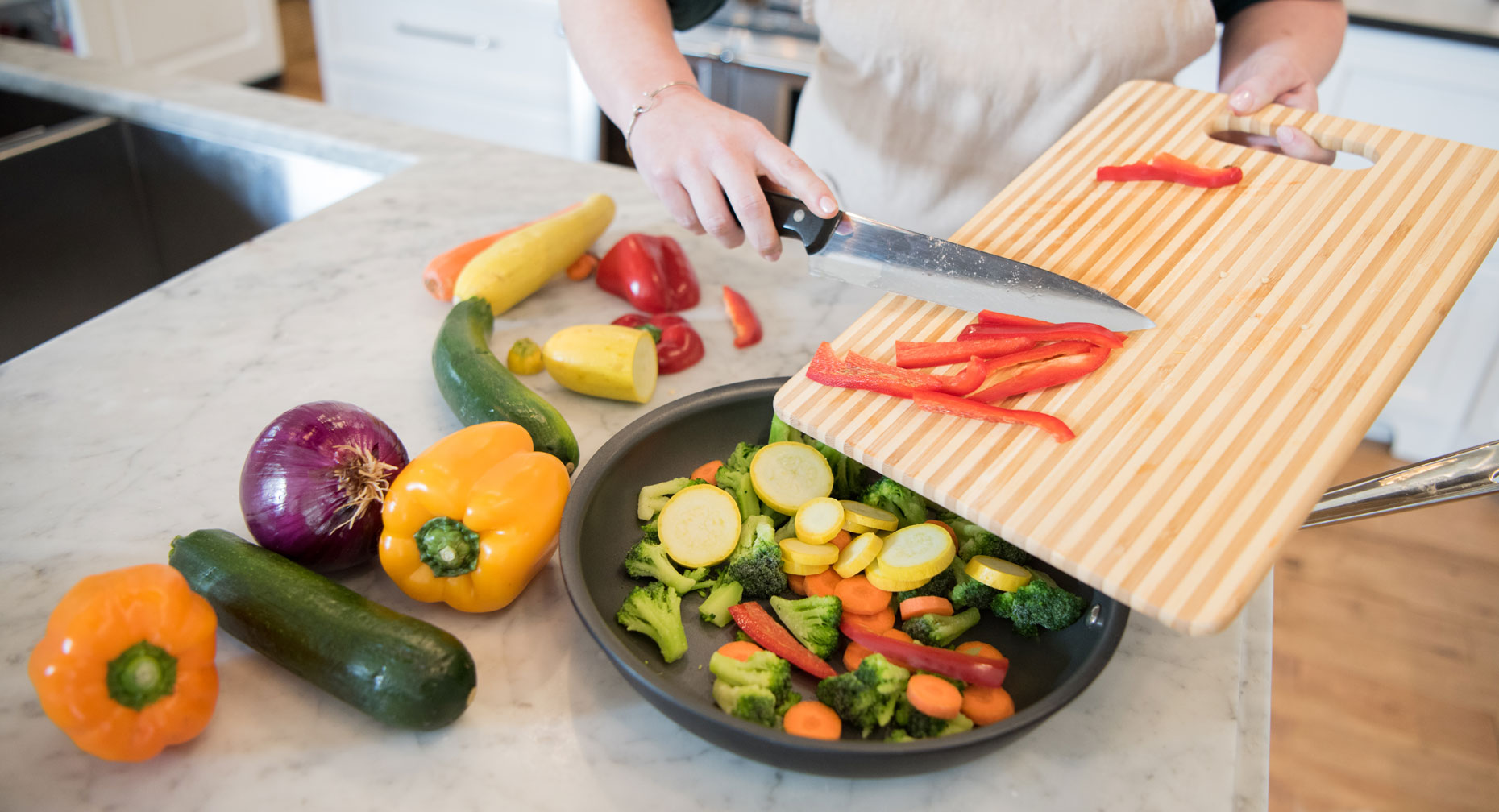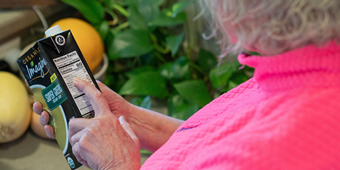Fertility-Friendly Foods

Answer a few questions and we'll provide you with a list of primary care providers that best fit your needs.
Your diet and your ability to get pregnant may not be the first connection you make when you start thinking about becoming a mom. But to put all the odds in your favor, it’s important to know that what you and your partner eat can affect your fertility. That goes for both women and men. While eating more of certain foods won’t guarantee pregnancy, research shows that making healthy nutrition decisions can reduce the risk of certain types of infertility.
Your ability to conceive can be affected considerably by your overall health. That includes being at a healthy weight. Plan to consciously adopt healthy eating habits three to 12 months before trying to conceive. Not only will this help your body be in good shape for getting pregnant, but it also creates good habits for a healthy lifestyle should you become pregnant.
Fertility and Body Weight
According to the National Women's Health Resource Center, one of the top causes of infertility is an unhealthy body weight.
For women, being overweight or obese can raise your risk of miscarrying or of being infertile. Fertility problems are also often a problem for women who are extremely underweight, especially for those with an eating disorder such as anorexia or bulimia. Being overweight or underweight can have an affect on ovulation, and when you don’t ovulate regularly, you may have fertility problems.
For men, being overweight or obese can result in low sperm count and poor sperm motility. Obesity in men may also affect testosterone and other hormone levels that are important for reproduction.
It’s best for both of you to be at or working toward a healthy weight when trying to conceive.
While eating more of certain foods won’t guarantee pregnancy, research shows that making healthy nutrition decisions can reduce the risk of certain types of infertility.
Eating to Promote Fertility

An eight-year study out of Harvard School of Public Health looked at the diets of more than 18,000 women and found evidence pointing to foods that may help reduce infertility. The results were published in 2007 and later formed the basis for a book titled The Fertility Diet.
The study found that women who followed the “fertility diet” lowered their risk of ovulatory infertility by 66 percent. Ovulatory infertility is the cause of infertility for one in four couples facing infertility.
Adopt this eating plan and increase your chances of fertility by choosing:
- Foods with more monounsaturated and polyunsaturated fats. Add more vegetable oils, nuts and seeds in your diet, as well as cold water fish like salmon and sardines. Reduce saturated fats and aim to avoid trans fats altogether.
- More plant-based than meat-based proteins. Try some new recipes with beans, peas, soybeans or tofu, and nuts.
- Fiber-rich carbs. These include whole grains, vegetables, whole fruits and beans. They help control blood sugar and insulin levels, which can improve fertility.
- High-fat dairy versus low-fat. Go with whole milk and full-fat yogurt or ice cream (yay!) while trying to get pregnant. Skim milk has been tied to infertility.
- Vegetarian sources of iron over meat sources. Think whole-grain cereals, spinach, beans, pumpkin, tomatoes and beets.
The women in this study also took a multivitamin (including 400 mg daily of folic acid) and relied primarily on water for hydration.
This diet does not promise pregnancy. And eating these foods was not shown to have an effect on infertility due to a physical condition such as blocked fallopian tubes. But it has been shown to decrease certain infertility risks and can help prepare your body to be in the best shape possible for conceiving.
If you have been trying to get pregnant for a year or more ( or six months if you’re over 35), talk to your health care provider about next steps.
Answer a few questions and we'll provide you with a list of primary care providers that best fit your needs.
Source: Academy of Nutrition and Dietetics; American Pregnancy Association; National Women’s Health Resource Center; Harvard Medical School




